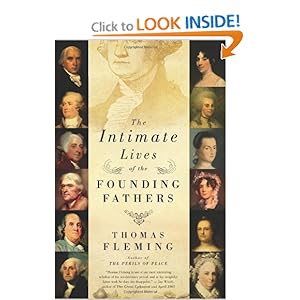Channelling George Washington: Winston Churchill, Great-Grandson of the American Revolution
 “I’ve got a question that will baffle all you so-called historians, plus a lot of history buffs. What British prime minister was a member of the Society of the Cincinnati?”
“I’ve got a question that will baffle all you so-called historians, plus a lot of history buffs. What British prime minister was a member of the Society of the Cincinnati?”
“Maybe we ought to remind people the Society is composed of the descendants of the officers of the Continental Army—and you were its first president.”
“I might add there’s a French branch, still regularly meeting in Paris.”
“Why was the Society created?”
“It was put together after the Continental Congress welched on paying the officers the pensions they’d solemnly promised them. Its first purpose was help officers who might need money to return to civilian life. Also, a lot of officers were determined to uphold the ideals of the Revolution at a time when it looked as if they might be forgotten.”
“Where did the name Cincinnati come from?”
“The original was Lucius Quintius Cincinnatus, a Roman general who was famous for winning his wars and promptly returning to his farm, without any attempt to throw his weight around politically. That’s what we all did, after the Revolution.”
“The Cincinnati are still going strong?”
“They certainly are. They have a national headquarters, Anderson House, on Connecticut Avenue in Washington D.C. Each of the thirteen original states has a chapter, to which members are elected when they prove they are descendants of a Continental Army officer.”
“I can’t wait any longer. How did a British prime minister get to be a member?
“Winston Churchill’s mother was Jennie Jerome, daughter of Leonard Jerome, a Brooklyn financier and one-time editor of the New York Times. Winston had a great-grandfather who was a member of the 4th Massachusetts Continental Regiment, and another great-grandfather who served in the Connecticut Continental line.”
“Did he have any relatives who fought in the British Army?”
“None in the Revolution. But one of his ancestors was John Churchill, first Duke of Marlborough, perhaps the most famous general in British history. He led the King’s troops in Europe during the War of the Spanish Succession, from 1701 to 1714. This entitled Winston to describe our Revolution as ‘the war between Us and We.’”
“Was he proud of his American ancestors?”
“Definitely. When he spoke to a joint session of Congress in 1941, he said, ‘Had my father been American and my mother British, I might have got here (in front of Congress) on my own!’ In another speech he said he felt as if he were on both sides of the Atlantic Ocean.”
“Was he ever formally inducted into the Society?”
“In 1950, when he came to America to confer with President Harry Truman, he was invited to Anderson House and formally joined the Connecticut Society as a hereditary member. It was a memorable moment in the history of both countries.”
“Did it get any publicity?”
“It sure did. Among the one hundred forty guests at the ceremony was Alben Barkley, Vice President of the United States, and Frederick Vinson, Chief Justice of the Supreme Court. Winston posed for photographs with the Cincinnati medal around his neck. The president of the Cincinnati declared: ‘Your name will illuminate our rolls with undying brightness.’”
“Did Churchill reply?”
“‘I value this honor,’ he said. ‘Let it be a help to all of those forces—they are, in my opinion, irresistible forces—which draw our two nations together, not for any unworthy purpose of combination or gathering strength, but in order that they may defend the freedom of the world.’”
“Are there any Churchills in the Cincinnati today?”
“A grandson, Duncan John Winston Sandys, has just been inducted as a hereditary member of the Massachusetts Society.”